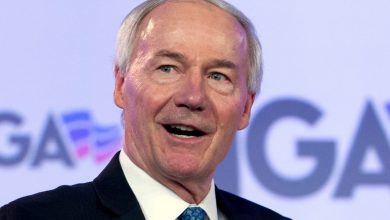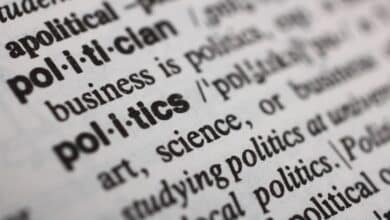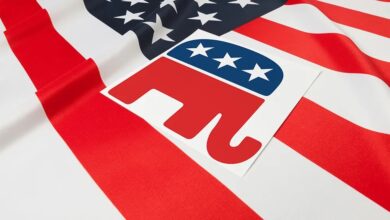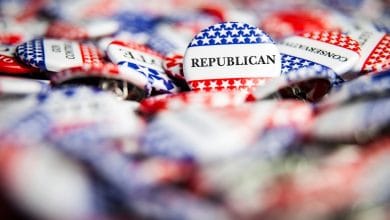 It is no longer an occasional occurrence. It is now a biennial event. For the third time since 2016 a state Representative has resigned from office to take a government lobbyist job. Every two years in June or July during an election year a member of the Arkansas House of Representatives has resigned to take a government lobbyist job
It is no longer an occasional occurrence. It is now a biennial event. For the third time since 2016 a state Representative has resigned from office to take a government lobbyist job. Every two years in June or July during an election year a member of the Arkansas House of Representatives has resigned to take a government lobbyist job
The whole idea of state agencies and institutions using taxpayer money to hire a lobbyist to lobby other agencies and officials is offensive to fiscal conservatives, but that is an issue for another day. Here we only focus on showing the recent pattern of legislators resigning to become government lobbyists.
None of the three legislators who resigned were running for reelection but there was still about six months remaining in each representative’s term of office.
When they resign the people of their district have no one to represent them until a special election is held to fill the vacancy. That election can occur at the same time as the November general election. Even though the district goes unrepresented for months it is unlikely the Governor would call a special session of the legislature so late in the campaign season.
You can see the pattern of resignations each two years.
June 3, 2016 – Representative Kelly Linck (R – Flippin) resigned to take a newly created governmental relations job with the Department of Human Services. Linck left his government lobbyist job in 2019 to become a lobbyist in a big private sector lobbying firm.
June 15, 2018 – Speaker of the House Jeremy Gillam (R-Judsonia) resigned to become the Director of Governmental Relations and External Affairs for the University of Central Arkansas.
July 10, 2020 – State Representative Grant Hodges (R- Rogers) resigned to become the Executive Director of Community and Government Relations and Marketing for Northwest Arkansas Community College. Both Gillam and Hodges represent institutions of higher education.
None of their titles say “lobbyist” and instead use terms like “government relations” or “governmental affairs.” Those terms have become synonymous with “lobbyist.” For many years lobbyist associations have suggested their members quit using the “L-word” because it has negative connotations and instead suggest a title such as “government relations” or “government affairs.” We read many definitions of “government relations” and saw that often the definitions add “also known as lobbying.” One online dictionary just redirects you to its definition of lobbying.
You may have heard there is a two-year cooling off period before a state legislator can become a lobbyist. That is true, but only for becoming a private lobbyist. It doesn’t apply if a legislator is going to become a lobbyist for a state agency or institution.
How did the exemption allowing a legislator to immediately become a government lobbyist come about? The cooling off law applies to a person required to register as a “lobbyist under Arkansas Code § 21-8-601 et seq.” That reference is to the lobbyist registration law and the lobbyist registration law exempts public servants from having to register as a lobbyist. A government lobbyist would be a public servant.
Exempting public servants from having to register reflects the reality that any state employee in a management position may be called upon to lobby (to advocate) for the agency’s budget and programs. But does it make sense to use the registration exemption to exempt government lobbyist jobs from the cooling off period?
Whether there is a logical reason or not, the law is unlikely to change. If a legislator wanted to pass a law to include government lobbyists, the legislator would need two-thirds of the House and Senate to vote for the change. The cooling off period and its exemption is now in Article 19 § 29 of the Arkansas Constitution and cannot be amended except by a two-thirds vote of both the Senate and House of Representatives or by an amendment to the Constitution. With the high threshold, the government lobbyist exemption will likely be around for a long time, providing employment opportunities to legislators.
You may or may not approve of the exemption, but just because a legislator takes advantage of the loophole does not mean he is a bad person. It is the appropriateness of the law that is in issue.
You might think it likely that all these legislators have have supported expansion of big government. That is not the case, Grant Hodges had one of the most fiscally conservative records in the legislature.
So, what’s the point? Legislators are well aware of this government lobbyist career path, and we think you deserve to know about it too so you will be aware of what is going on when it comes up next time.
There is a possibility 2022 will be a special case. With legislative districts being redrawn for the 2022 elections there may be several legislators deciding not to run for re-election and looking for government lobbying jobs or other government jobs. On the other hand, legislators might shy away from government lobbyist jobs in 2022 because with a new governor being elected later in the year legislators may not want to risk the possibility the next Governor wants someone else in those jobs.







You should dig around he’s already doing unethical things at NWACC!